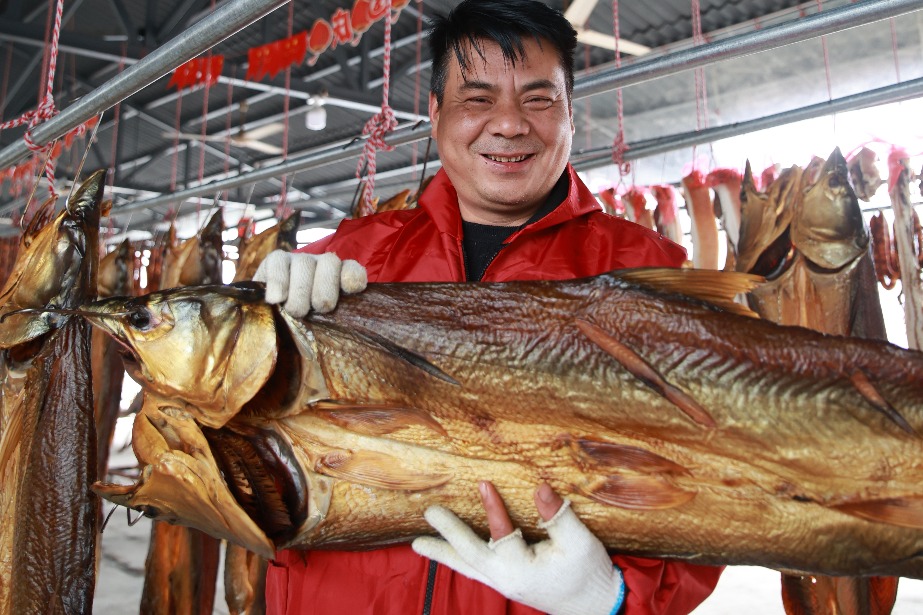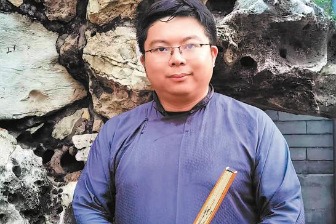Overseas media applaud rural development, anti-terrorism efforts

After visiting the Xinjiang Uygur autonomous region, media professionals from 16 countries have praised the rural development, anti-terrorism and deradicalization efforts made in the region.
A seminar for media executives from countries along the Silk Road Economic Belt, hosted by the State Council Information Office, was held from Aug 17 to 23 in Xinjiang, which lies in Northwest China.
It hosted 20 media representatives from 16 countries, including Afghanistan, India, Japan, Russia and Turkey. In addition to attending lectures and seminars, the guests conducted in-depth interviews in the Changji Hui autonomous prefecture, and Kashgar and Aksu prefectures.
Progress
More than three decades ago, Kekeya in Aksu prefecture, on the northwestern edge of the Taklimakan Desert, was a massive sand dune with only sparse vegetation.
In 1986, the Aksu government launched an afforestation project in Kekeya to help restore the local ecosystem. More than 13 million trees were planted, resulting in the forest coverage rate rising to 6.8 percent. Moreover, local fruit production has greatly improved farmers' incomes.
The media executives were deeply impressed by the rural development and effective environmental preservation in Xinjiang.
Akram A. R. Abu Al Hannoud, director of the foreign affairs department of Al Bayan newspaper in the United Arab Emirates, described the project's success in turning the desert into an oasis as "very impressive".
"I have seen the great efforts and the efforts of the local government to raise incomes. It's a very good example of how human development can be realized while the ecological environment is restored," Akram A. R. Abu Al Hannoud said.
Kazhyken Saltanat, deputy editor-in-chief of Tenge Observer, a newspaper in Kazakhstan, said: "Thanks to the improved environment, farmers have increased their incomes. Aksu produces such good apples, and there is a good chance that the region's apples will be sold in winter markets in Kazakhstan."
According to Yokoshima Daisuke, director of the China bureau of the Nippon Television Network from Japan, China has done a good job of building a more eco-friendly economy and protecting its environment.
The group also visited the Old Town in Kashgar, a key tourist site with renovated houses and shops that have maintained their distinctive ethnic style thanks to extensive government investment.
The supportive and protective measures taken by the central government are of great importance to improving the living conditions of the local people, according to Mansoor Faizy, editor-in-chief of the Afghan Times. The measures include the development of tourism and the renovation of rural residents' homes, along with the protection of ethnic culture.
H. M. Mostofa Kamal, executive editor-in-chief of the Daily Kaler Kantho in Bangladesh, said, "It really is a good initiative because the rural people and poor people can develop their lifestyles and improve their lives."
The visitors said that the Chinese government's successful experience in maintaining Xinjiang's stability should be applauded.
Deradicalization efforts
The seminar arranged for the journalists to visit the Exhibition on Cases of Major Terrorist Attacks and Violent Crimes in Xinjiang.
"The government and the public have worked together to reduce the occurrence of extremism and similar incidents, which has been very effective," said Naveed Aman Khan, a columnist from Pakistan.
The media group visited two vocational education and training centers. At the vocational training center in Wensu county, which is equipped with a psychological consulting room, along with a movie theater, a painting room, a reading room and other places for recreational pursuits, the colorful extracurricular activities of the students attracted the visitors' attention.
"The students at the center can choose different curriculums on all kinds of vocational skills. Through these courses, I believe they will live better in the future," Khan said.
Saeed Ahmad S. A. Al-Kuwari, news editor at the Qatar State News Agency, said it was a positive step for the Chinese government to set up this kind of school to eradicate extremist thoughts.
Dmitry Kosyrev, a political commentator and China expert from Russia Today International News Agency, said that he decided to see the centers for himself after learning about the so-called concentration camps, as claimed by some Western media.
"I've come here and seen that this is just a school, a model for counter-terrorism," he said. "Today, Russia is also combating terrorism, and we have something to learn from China. We need to cooperate with each other and face up to it together and fight against terrorism through deradicalization. This education model in China could also be an example for other countries to learn from in the future," he added.
Akram A. R. Abu Al Hannoud said, "After visiting Xinjiang, we have seen and discovered a lot of facts that we had not known before."
Xinhua




































